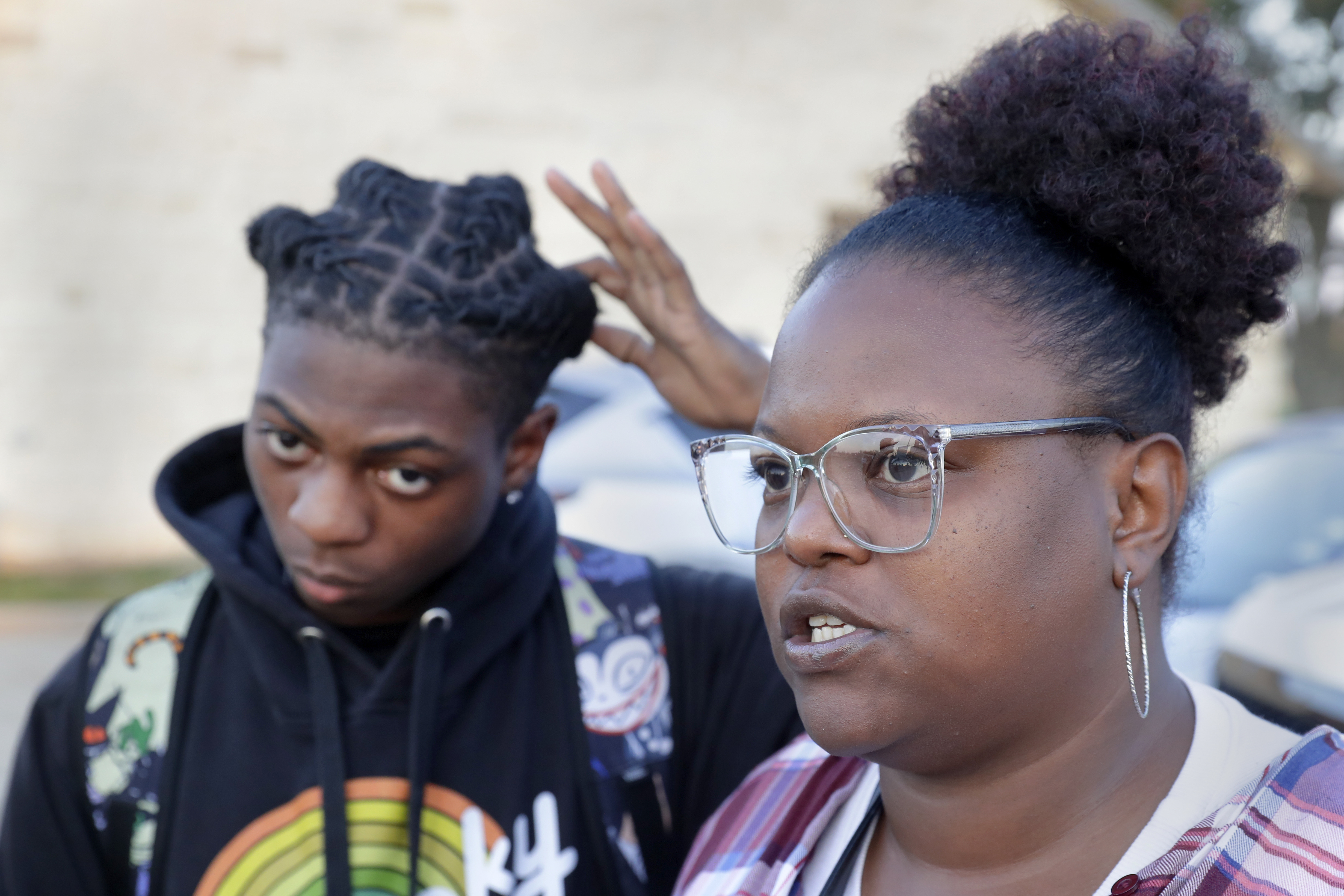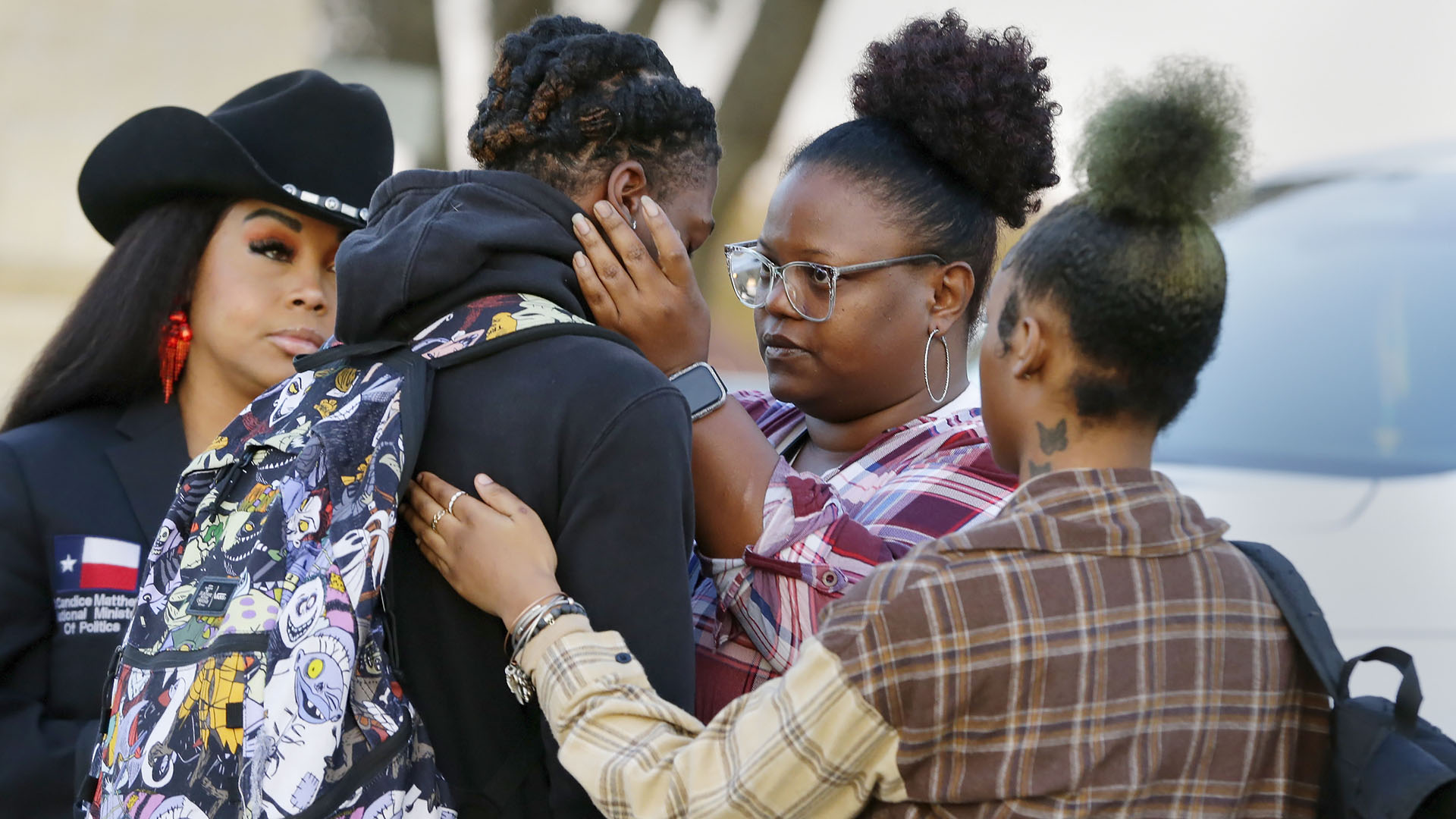
A Texas high school sent a Black student back to in-school suspension Tuesday for refusing to change his hairstyle, renewing a monthslong standoff over a dress code policy the teen's family calls discriminatory.
The student, Darryl George, was suspended for 13 days because his hair is out of compliance when let down, according to a disciplinary notice issued by Barbers Hill High School in Mont Belvieu, Texas. It was his first day back at the school after spending a month at an off-site disciplinary program.
George, 18, already has spent more than 80% of his junior year outside of his regular classroom.
He was first pulled from the classroom at the Houston-area school in August after school officials said his braided locs fell below his eyebrows and ear lobes and violated the district’s dress code. His family argues the punishment violates the CROWN Act, which became law in Texas in September and is intended to prohibit race-based hair discrimination. The school says the CROWN Act does not address hair length.
Get top local stories in DFW delivered to you every morning. Sign up for NBC DFW's News Headlines newsletter.
“We are just trying to take it day by day. That’s all we can do,” his mother, Darresha George, told The Associated Press. “We do not see the light at the end of the tunnel. But we are not giving up.”
The dress code policy at Barbers Hill Independent School District attracted headlines in 2020 when a Black student was forbidden to return to school or attend his graduation ceremony unless he cut his locs. Greg Poole, who has been district superintendent since 2006, has said the policy is legal and teaches students to conform as a sacrifice benefitting everyone.
DARRYL GEORGE
School officials said George was sent to the disciplinary program for violating the dress code and the tardy policy, disrupting the in-school suspension classroom and not complying with school directives. As he completed his punishment there, district spokesperson David Bloom said George was told he would go back to in-person suspension unless he trimmed his hair.
George's family has filed a formal complaint with the Texas Education Agency and a federal civil rights lawsuit against the state’s governor and attorney general along with the school district, alleging they failed to enforce the new law outlawing discrimination based on hairstyles.
The school district has filed a lawsuit in state district court asking a judge to clarify whether its dress code restrictions limiting student hair length for boys violate the CROWN Act.
State Rep. Ron Reynolds, a Democrat and chair of the Texas Legislative Black Caucus, said he planned to file an amendment to the law during the next session that “specifically addresses length to stop their pretextual argument to not comply with the Crown Act.”
“They are acting in bad faith to continue discriminating against African American students,” Reynolds said in an email.
George said he feels like is being singled out because there are other boys in the school with longer hairstyles than his. He was denied an exemption that the family requested because of the hairstyle’s cultural and religious importance.
“It’s frustrating because I’m getting punished for something everyone else is doing, growing hair, having hair,” George said.



